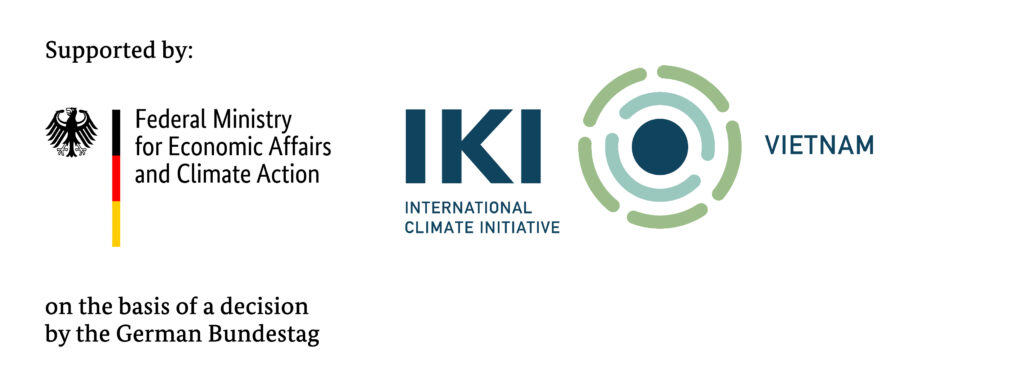In the evolving landscape of global energy consumption, the demand for space cooling is steadily growing, constituting 16% of the final energy consumed by the building sector in 2020. Without proactive interventions, projections indicate a surge in both direct and indirect emissions from air conditioning and refrigeration. By the year 2030, these emissions are anticipated to escalate by approximately 37% above 2017 levels. Such a sharp increase not only poses environmental concerns but also presents significant cost implications for the power grid and the requisite power capacity.
In the tropical country of Viet Nam, a similar storyline is unfolding. The residential and commercial sector collectively account for nearly 30% of the final energy consumption, based on data from 2015. Within this sector, space cooling emerges as a notable contributor to energy consumption. Estimates suggest that space cooling activities already account for 40% of residential power demand. Likewise, in commercial and public services domains, space cooling constitutes a substantial portion, ranging between 25% to 40% of energy consumption.
Recognising the gravity of the cooling challenge, Viet Nam has taken a significant stride towards achieving its climate targets by engaging in the NDC Action Project. This initiative supported by IKI and the Kigali Cooling Energy Efficiency Programme (KCEP) and spearheaded by UNEP, aids ten partner countries, including Viet Nam, in translating their Nationally Determined Contributions into actionable strategies ready for implementation and financing. Within this initiative, each participating nation identifies two key sectors — one for adaptation and another for mitigation to concentrate on. In the case of Vietnam, the focus lies on urban cooling and enhancing climate resilience in the central coastal region. This initiative operates by bringing together expert groups dedicated to projects addressing these focal areas within each country. By striking a balance between international and local expert groups, it maximises the effectiveness of implementation efforts, ensuring that interventions are both globally informed and locally relevant.
With an aim to develop a comprehensive cooling strategy aligned with a vision extending to 2050, Viet Nam seeks to enhance the country’s resilience to extreme heat, reduce vulnerability, and minimize losses associated with its impacts, all while striving to achieve the ambitious goal of net-zero emissions.
 Joint Kick-off Workshop on Sustainable Urban Cooling in Viet Nam, May 2023
Joint Kick-off Workshop on Sustainable Urban Cooling in Viet Nam, May 2023
Within the framework of this project, two pilot cities, Can Tho and Tam Ky, have been chosen to undergo thorough urban heat analyses. These analyses aim to pinpoint challenges at various scales, including the city level, neighborhood level, and building level. Subsequently, tailored recommendations have been crafted to guide the implementation of sustainable cooling solutions. These recommendations cover a wide array of strategies, including urban planning initiatives, utilisation of passive cooling techniques, integration of nature-based solutions, enhancements in cooling equipment efficiency, and initiatives to shape consumer behavior.
For both pilot cities, a list of priority projects has been identified based on-site visits by experts, highlighting potential sites for the implementation of cooling solutions.
In parallel a comprehensive analytical report on policies and programmes concerning cooling was compiled, offering invaluable insights into the landscape of climate action. This was the culmination of an extensive urban cooling policy mapping exercise conducted at both national and pilot city levels, complemented by the gathering of international best practices in cooling solutions.
Following these activities, interactive workshops were conducted in both cities, bringing together relevant stakeholders from various departments, including natural resources and environment, construction, planning and investment, industry, and trade. The stakeholders convened to deliberate on policy mapping outcomes, prioritise project initiatives, and review the preliminary findings of heat analysis, fostering a collaborative environment conducive to informed decision-making and impactful action.
 Consultation Workshop in Can Tho, December 2023
Consultation Workshop in Can Tho, December 2023 Consultation Workshop in Tam Ky, January 2024
Consultation Workshop in Tam Ky, January 2024
The People’s Committee of each pilot city will select one project from the priority list to undergo a pre-feasibility analysis. Concurrently, innovative financial mechanisms are being explored to ensure the long-term sustainability and scalability of these vital initiatives. Additionally, the potential linkage of cooling solutions to a future carbon market is under analysis.
Overall, a concerted effort to address pressing climate challenges, a robust multistakeholder mechanism will be fortified and streamlined, bolstering collaborative endeavours towards sustainable development. Through rigorous capacity needs assessments and targeted training initiatives, efforts will be directed towards augmenting expertise and ambition in tackling climate-related issues.
If you want to know more about the project, please visit: NDC Action – facilitating implementation of climate-resilient and low-carbon development | Internationale Klimaschutzinitiative (IKI) (international-climate-initiative.com)
